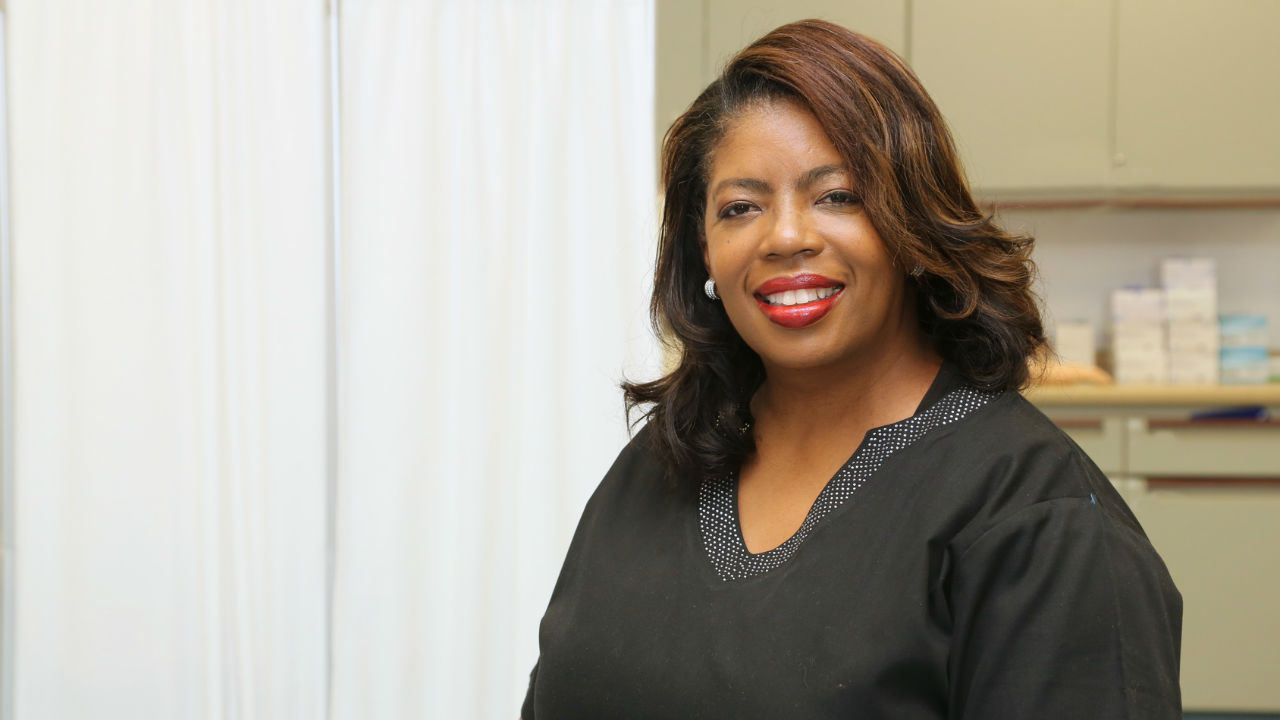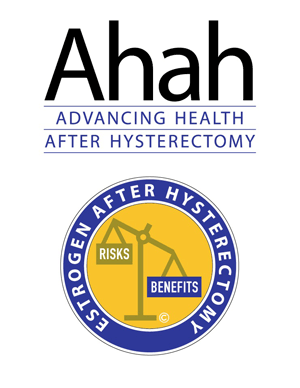 Martinan/fotolia
Martinan/fotolia
Ahah was founded in 2014 to combat widespread fears about estrogen that were based on a misunderstanding of the results of one study-The Women’s Health Initiative (WHI). Ahah focuses on the 40 percent of women in the United States who have had a hysterectomy by age 60, a total of 15,000,000 women2!
Because they have no uterus these women can safely take estrogen-only (ET) therapy for treating symptoms related to the menopause and reducing risk of diseases related to the loss of estrogen production. Many studies, including WHI, have found that taking estrogen before age 60 and/or within 10 years of developing symptoms of estrogen deficiency controls debilitating symptoms including hot flashes, sleep disturbance, and fatigue, and reduces the risk for developing osteoporosis and hip fracture, atherosclerosis and heart attacks, and vaginal atrophy and sexual dysfunction. The risks for developing breast and colon cancer are reduced in women taking ET and their mortality rates are reduced.1
In spite of these very positive benefits of ET, the percentage of women using ET after hysterectomy has declined from more than 90 percent to less than 25 percent.3 The decline was triggered by the results of the initial WHI report in 2002 of the negative effects of hormone therapy in women with a uterus. Those women used a second hormone called MPA to protect the lining of the uterus. MPA opposed the actions of estrogen and in doing so resulted in an increase in heart attacks, stroke, blood clots and breast cancer. Women without a uterus have no need for MPA and can reap the benefits of estrogen alone. Nevertheless, there is still widespread unwarranted fear of ET.
What can you expect to find on the EmpowHER/Ahah content hub? Based on the latest medical literature, there will be articles about hysterectomies, about estrogen therapy, and about some non-hormonal relief for symptoms of estrogen deficiency.
Philip Sarrel, M.D. is the President of Ahah and Lorna Sarrel, MSSW is its Secretary and Treasurer. Because the Sarrels have expertise on the topic of sexuality, they will write articles about sex and menopause, and sex and aging.
They are also planning a new series titled “Our Menopause” that will help couples to face and cope with the challenges of menopause. Ahah Advisory Board members will contribute articles based on their expertise as well. By bringing the facts about estrogen to health care professionals and women, Ahah hopes that more women will choose ET, starting within 10 years of losing their ovaries’ estrogen production.
We want to emphasize that Ahah and its’ founders are not paid by any pharmaceutical company. An Advisory Board of more than 20 thought leaders in the field of women’s health contributes to the development and carrying out of Ahah’s programs and goals.
The board of directors is made up of:
- Dr. Philip Sarrel, M.D., President of Ahah, Emeritus Professor of Obstetrics, Gynecology and Reproductive Sciences and Psychiatry at Yale University
- Lorna Sarrel, MSSW, Secretary and Treasurer of Ahah, former Instructor and Assistant Clinical Professor of Social Work in Psychiatry at Yale University School of Medicine
- Albert Angel, Vice President of Ahah
- Howard Hodis, Director of Ahah, Harry J. Bauer and Dorothy Bauer Rawlins Professor of Cardiology, Professor of Medicine and Preventive Medicine, Professor of Molecular Pharmacology and Toxicology, Director of Atherosclerosis Research Unit, and Division of Cardiovascular Medicine at the Keck School of Medicine of USC
- Michelle King Robson, Director of Ahah, Founder of EmpowHER and SkinSAFE
About Philip M. Sarrel, M.D.
Philip M. Sarrel, M.D., is Emeritus Professor of Obstetrics, Gynecology and Reproductive Sciences and Psychiatry at Yale University in New Haven, Connecticut. He has been a member of the Yale Ob/Gyn faculty since 1963.
A board-certified obstetrician and gynecologist, Professor Sarrel has also been a member of the Psychiatry Department since 1969. In 1975, he started Yale's Menopause Program and remained Program Director until 2002. During that time he directed or was involved in both clinical and basic science research, studying the effects of ovarian hormones on arterial function. In 1982, he devoted a sabbatical year to menopause studies with Professor Malcolm Whitehead at the King's College in London.
From 1989-1990, as a visiting professor at the National Heart and Lung Institute in London, another sabbatical year was devoted to arterial studies of ovarian hormone actions. During that time, and subsequently, more than 100 papers and abstracts were published by Professor Sarrel and his cardiology collaborators exploring cellular and physiological effects of estradiol-17B as well as clinical effects in women with angina and established heart disease.
In 2013 Sarrel et al published "Mortality Toll of Estrogen Avoidance" in the American Journal of Public Health. In 2014 and 2015 his publications focused on the impact of untreated menopause symptoms on women in the workforce.
Professor Sarrel has had a parallel career in Psychiatry in which his focus has been sexual development in adolescence and the treatment of sexual dysfunction. Together with Lorna Sarrel, he directed the Yale Sex Counseling Service from 1969 until his retirement in 2009. He is the author or co-author of six books and more than 200 articles published in refereed medical journals.
He is currently a Fellow of the Koerner Center for Emeritus Professors at Yale.
In 2014, Professor Sarrel founded the Advancing Health After Hysterectomy Foundation.
About Lorna Sarrel, MSSW
Lorna Sarrel retired after 35 years as Instructor and Assistant Clinical Professor of Social Work in Psychiatry at Yale University School of Medicine. With Philip Sarrel, she founded and ran Yale University’s Sex Counselling Service. She taught a course about sex, Topics in Human Sexuality, for Yale students for 25 years.
In 1971, with Philip Sarrel, she received training in sex therapy at the Reproductive Biology Research Institute headed by Dr. William Masters and Virginia Johnson. In 1975-76 she was an Associate in Research in the Department of Psychiatry, Oxford University, England. Between 1978 and 1981, Lorna Sarrel was Co-Principal Investigator for a National Institute of Mental Health training grant to train community therapists in the essentials of sex therapy.
Lorna Sarrel is the co-author of two books and co-editor of two others all having to do with human sexuality and development. Psychosexual aspects of menopause have been the focus of other articles. She was a Contributing Editor, with her husband, to Redbook Magazine, originating and writing the monthly column “Sex and Health.”
Between 1975 and 1985 she served as a board member and chairman of the Board of the Sex Information and Education Council of the United States. Between 1978 and 1989 she was Consultant, Broadcast Standards and Practices of ABC Television.
Lorna Sarrel is a graduate of Mt. Holyoke College and the Columbia School of Social Work. In 1987, Mt. Holyoke honored her with the Alumnae Association’s Sesquicentennial Award for outstanding graduates. She has also received the President’s Medal from Kirkland College and the Elm and Ivy Award from the City of New Haven & Yale University.
Read more in Advancing Health After Hysterectomy
1) Ref 1. Manson JE and Kaunitz AM. Menopause Management –Getting Clinical Care Back on Track. NEJM 2016;374:803-806.
2) Merrill RM Hysterectomy surveillance in the United States, 1997 through 2005. Med Sci Monit. 2008;14(1):CR24-CR31 and Whiteman MK, Hillis SD, Jamieson DJ, et al. Inpatient hysterectomy surveillance in the United States, 2000-2004. Am J Obstet Gynecol. 2008; 198(1):34.e1-34.e7
3) Chubaty A, Shandro MT, Schuurmans N, Yuksel N. Practice patterns with hormone therapy after surgical menopause. Maturitas. 2011;69 (1):69-73.






Add a CommentComments
There are no comments yet. Be the first one and get the conversation started!